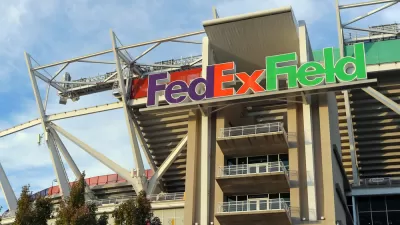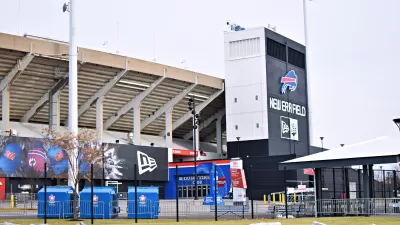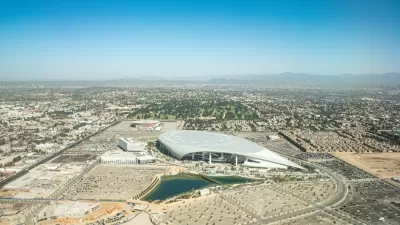There are only 30 NFL teams in the country—and many of those still have stadiums within the 15-year window of obsolescence for stadium facilities.

All ideas are on the table in an effort to revive the struggling football stadium construction industry.
The responsibility to fund the construction of new, lavish football stadiums to house the National Football League has traditionally fallen to taxpayers, but after a building boom spanning the last several years, a glut in football stadium supply has led to layoffs, declining wages, and decreasing tax revenues for local and state governments. A shortage of professional football leagues is also contributing to the football stadium construction industry's doldrums.
A bipartisan ad-hoc committee House committee convened for the first time today in an effort to address the national football stadium construction crisis, making clear that Congress intended to bail out the football stadium construction industry.
"Now that the NFL has moved to Los Angeles, and ditched those backwater dead-ends from whence they came, the football stadium industry will need new kinds of support to keep up its taxpayer subsidized quest for world domination. That's where Congress comes in," said a noticeably smug committee chairman Jerry Davis-Kraft, who spoke on behalf of all Americans.
Options discussed at the first hearing of the committee included layering NFLs on top of each other to create more need for football stadiums as well as potentially invading foreign countries and setting up American-style football leagues. A sub-committee meeting scheduled for later in the day is tasked with locating any and all urban waterfront locations in the country, except St. Louis and San Diego, for potential development.
FULL STORY: Congress to Bail Out the Football Stadium Industry

Planetizen Federal Action Tracker
A weekly monitor of how Trump’s orders and actions are impacting planners and planning in America.

Congressman Proposes Bill to Rename DC Metro “Trump Train”
The Make Autorail Great Again Act would withhold federal funding to the system until the Washington Metropolitan Area Transit Authority (WMATA), rebrands as the Washington Metropolitan Authority for Greater Access (WMAGA).

DARTSpace Platform Streamlines Dallas TOD Application Process
The Dallas transit agency hopes a shorter permitting timeline will boost transit-oriented development around rail stations.

Supreme Court Landlord Appeal Case Could Overturn Tenant Protections
A legal case claiming that COVID-era eviction moratoriums were unconstitutional could spell trouble for tenant protections.

Texas Moves to Curb Orphan Wells, But Critics Say Loopholes Remain
A proposed state law would shift financial responsibility for sealing unused drilling sites from the public to energy operators, though some advocates question its effectiveness due to industry-backed exemptions.

Affordable Housing Finance 101
The financial intricacies involved in building affordable housing can be difficult to understand. This explainer breaks down the foundational concepts.
Urban Design for Planners 1: Software Tools
This six-course series explores essential urban design concepts using open source software and equips planners with the tools they need to participate fully in the urban design process.
Planning for Universal Design
Learn the tools for implementing Universal Design in planning regulations.
Municipality of Princeton
Roanoke Valley-Alleghany Regional Commission
City of Mt Shasta
City of Camden Redevelopment Agency
City of Astoria
Transportation Research & Education Center (TREC) at Portland State University
US High Speed Rail Association
City of Camden Redevelopment Agency
Municipality of Princeton (NJ)





























